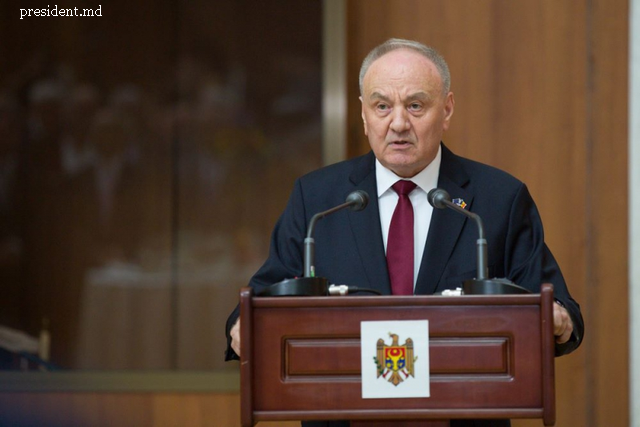Political deadlock in Moldova
Liberal and Democrat leaders in Moldova say they will hold fresh talks to secure parliament support for a new government.

Valentin Țigău, 05.01.2016, 13:37
The Moldovan Parliament has failed to hold a vote on the new cabinet
proposed by the Prime Minister designate, the businessman Ion Sturza. The
reason was the lack of quorum, as only 47 out of the total of 101 MPs took part
in the vote. Two factions of the Moldovan Parliament had expressed their
refusal to vote the programme and membership of the new government: the
Socialist Party, currently the largest group in Parliament, and the Communist
Party, both in opposition.
The Liberals and the Democrats said the failure to invest the new
cabinet was predictable, and that they wouldn’t have voted in favour of Ion
Sturza anyway. The leaders of these parties, both former members of the
Alliance for European Integration, have announced negotiations would continue
regarding the creation of a parliamentary majority by January 11, when they
hope to submit a proposal for the position of Prime Minister to president
Nicolae Timofti.
The new candidate will have 15 days to form a government. If Parliament
doesn’t give its vote of confidence to the new cabinet by January 29, president
Timofti will have to dissolve Parliament and call early elections. Backed only
by the Liberal Democratic Party and the European People’s Party, Ion Sturza on
Monday admitted his defeat and said he would take part in any new political
project able to break the institutional deadlock in Moldova. He expressed
willingness to take part in the upcoming early elections, which he sees as
inevitable.
Political pundits also tend to see Moldova as
heading towards snap elections, while criticising the sharp decline in internal
politics and expecting the country to shift its allegiance from the West
towards the East. Jamestown Foundation and Eurasia Daily Monitor commentator
Vladimir Socor even went as far as to claim that democracy and the rule of law
in Moldova have failed, given that the institutional systems of the country
have collapsed and enthusiasm for the European Union is decreasing. Vladimir
Socor believes that Moldova is on the brink of chaos, facing a deep
misunderstanding of the notion of national interest, and the immorality of
political parties is the fundamental explanation for this fact.






























